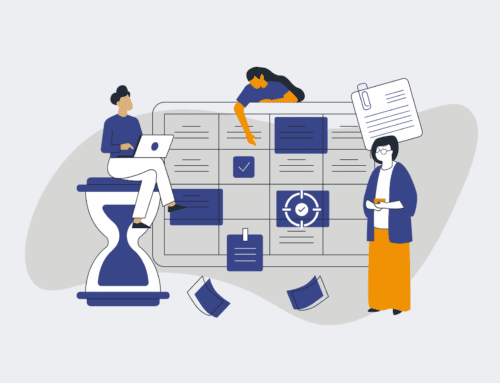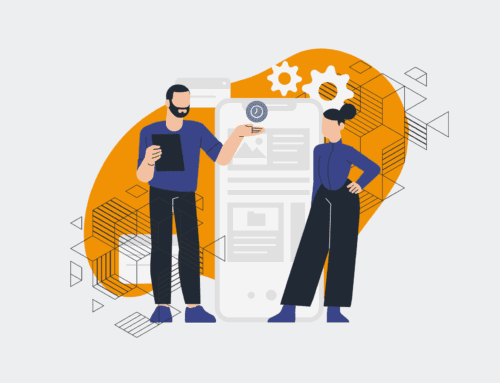Navigating the New Era: How Emerging AI Regulations are Reshaping HR and Talent Acquisition
The rapid proliferation of Artificial Intelligence in the workplace, particularly within Human Resources and talent acquisition, has ushered in an era of unprecedented efficiency and innovation. Yet, with great power comes great responsibility, and governments worldwide are beginning to grapple with the ethical and societal implications of these powerful tools. A recent groundbreaking development, exemplified by the fictional “Global Data and AI Ethics Accord” (GDAEA) proposed by a coalition of international bodies, signals a seismic shift. This accord, detailed in a preliminary report by the Global Institute of Workforce Studies, aims to standardize the ethical deployment of AI in employment, forcing HR leaders to re-evaluate their strategies and operational frameworks sooner rather than later. For organizations striving for efficiency and compliance, understanding this evolving landscape is no longer optional; it is a strategic imperative.
The New Regulatory Landscape: Unpacking the Global Data and AI Ethics Accord
The proposed Global Data and AI Ethics Accord (GDAEA), a hypothetical but plausible framework drawing inspiration from real-world initiatives like the EU AI Act, represents a monumental step towards regulating artificial intelligence across borders. While still in its conceptual stages, key tenets outlined in a white paper from the independent think tank, TechPolicy Insights, indicate a clear direction: transparency, fairness, accountability, and human oversight. The accord proposes mandatory impact assessments for AI systems used in high-stakes decisions, such as hiring, promotions, and performance management. This means organizations would be required to meticulously document how their AI tools are trained, what data they consume, and critically, how they mitigate biases.
According to a draft summary circulated by the Global Institute of Workforce Studies, the GDAEA would mandate that any AI algorithm used to screen candidates or evaluate employee performance must have its decision-making parameters auditable and explainable. Furthermore, individuals subjected to AI-driven decisions would have the right to challenge those decisions and request human review. This shifts the onus onto organizations to not only implement AI solutions but to deeply understand their inner workings and be prepared to defend their fairness and impartiality. Sanctions for non-compliance could range from substantial fines to reputational damage, making proactive adaptation a business necessity.
Implications for HR Professionals: Beyond Compliance
For HR professionals, the implications of such a regulatory framework extend far beyond mere compliance. It demands a fundamental rethinking of how AI is integrated into the talent lifecycle. The focus shifts from purely efficiency gains to ethical deployment and demonstrable fairness. Consider the current boom in AI-powered resume screening, interview bots, and predictive analytics for attrition. Under the GDAEA, these tools would face intense scrutiny. HR teams would need to:
* **Conduct thorough due diligence:** Before adopting any AI HR tool, validate its ethical guidelines, bias mitigation strategies, and transparency features. Is the vendor prepared to provide detailed documentation of their model’s training data and decision logic?
* **Establish internal governance:** Develop clear policies for AI usage within HR, defining roles, responsibilities, and oversight mechanisms. This might include forming an internal AI ethics committee or designating an AI compliance officer.
* **Invest in explainable AI (XAI):** Move beyond “black box” algorithms. Future-proofed HR systems will need to provide clear, understandable reasons for their recommendations or decisions, enabling human review and intervention.
* **Prioritize data privacy:** The accord is expected to reinforce and expand upon existing data privacy regulations, requiring HR to be even more scrupulous about how candidate and employee data is collected, stored, and processed by AI systems.
The drive for ethical AI is not just about avoiding penalties; it’s about fostering trust and maintaining a positive employer brand. A recent white paper from leading HR tech firm InnovateTalent Solutions highlighted that companies perceived as ethically responsible in their use of AI are more likely to attract and retain top talent. This means that embracing responsible AI practices becomes a competitive advantage, especially in a tight labor market.
The Strategic Imperative: Adapting Talent Acquisition with AI
The emergence of comprehensive AI regulations presents a strategic imperative for talent acquisition leaders. This isn’t just about tweaking existing processes; it’s about fundamentally integrating ethical AI considerations into the core talent strategy. Organizations that prioritize AI governance and responsible deployment will not only mitigate risks but also unlock new avenues for innovation and trust. The ability to articulate and demonstrate ethical AI practices will become a key differentiator in attracting a values-driven workforce.
Forward-thinking HR departments will begin by conducting an “AI readiness audit” to identify all existing AI touchpoints in their talent lifecycle, from initial outreach to onboarding. This audit should assess current practices against proposed regulatory benchmarks, identifying gaps in transparency, bias mitigation, and human oversight. Following this, a robust AI governance framework, similar to 4Spot Consulting’s OpsMesh™ strategy, can be implemented. This framework would outline clear protocols for selecting, deploying, and monitoring AI tools, ensuring alignment with both business objectives and ethical standards. It’s about designing systems where automation and AI enhance human decision-making, rather than replace it without accountability.
Furthermore, training and upskilling HR teams on AI literacy and ethics will be crucial. Understanding how AI works, its potential pitfalls, and how to interpret its outputs will empower HR professionals to be more effective stewards of these technologies. This shift also opens opportunities for greater collaboration between HR, IT, legal, and compliance departments, fostering a holistic approach to AI adoption that ensures robust ethical guardrails are in place from the outset.
Practical Takeaways for Forward-Thinking HR Leaders
Navigating this evolving regulatory landscape requires proactive measures and a strategic mindset. Here are key takeaways for HR leaders looking to future-proof their talent acquisition and management strategies:
* **Audit Your AI Ecosystem:** Begin by mapping out every instance where AI is currently used in your HR and talent acquisition processes. Identify potential areas of risk concerning bias, transparency, and data privacy.
* **Prioritize Vendor Due Diligence:** When evaluating new AI HR tools, press vendors on their commitment to ethical AI, explainable algorithms, and bias mitigation. Request detailed documentation on their models and training data.
* **Implement an AI Governance Framework:** Establish clear internal policies and procedures for AI usage. Define roles for oversight, ethical review, and continuous monitoring of AI systems. This could mirror our OpsBuild™ approach, tailoring implementation to your specific needs.
* **Invest in AI Literacy for HR Staff:** Equip your HR team with the knowledge and skills to understand, critically evaluate, and ethically deploy AI tools. This includes training on recognizing and mitigating algorithmic bias.
* **Foster a Culture of Transparency:** Be open with candidates and employees about where and how AI is used in decision-making. Provide avenues for feedback and human review, enhancing trust and demonstrating your commitment to fairness.
* **Leverage Automation for Compliance:** Use automation to help manage the increased documentation and reporting requirements that will likely accompany new regulations. Tools integrated via platforms like Make.com can streamline compliance workflows.
The era of unregulated AI in HR is rapidly drawing to a close. By embracing ethical AI principles and proactive governance, HR leaders can transform potential compliance challenges into strategic opportunities, building a more fair, transparent, and efficient talent ecosystem for the future.
If you would like to read more, we recommend this article:
If you would like to read more, we recommend this article: The Future of Talent Acquisition: A Human-Centric AI Approach for Strategic Growth









